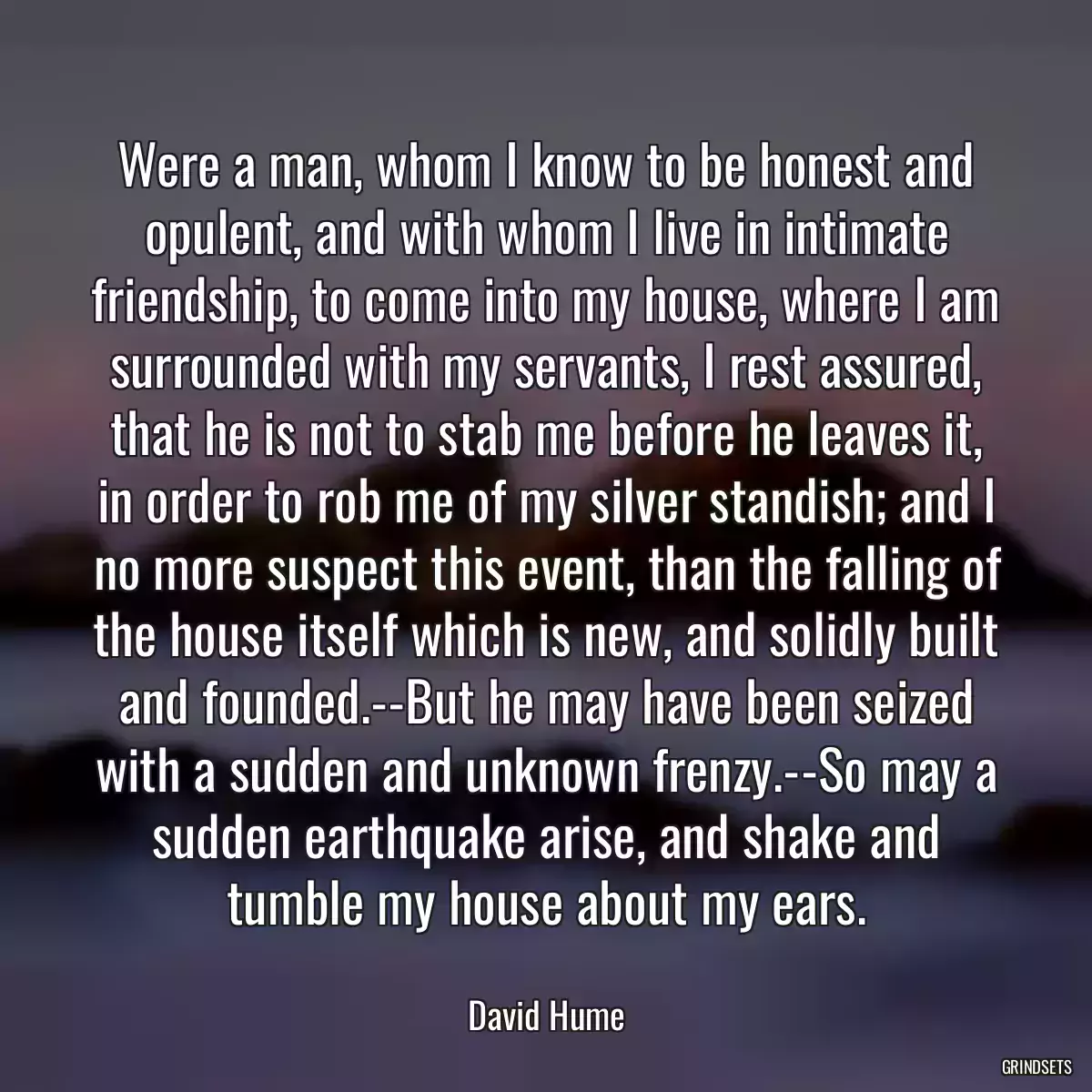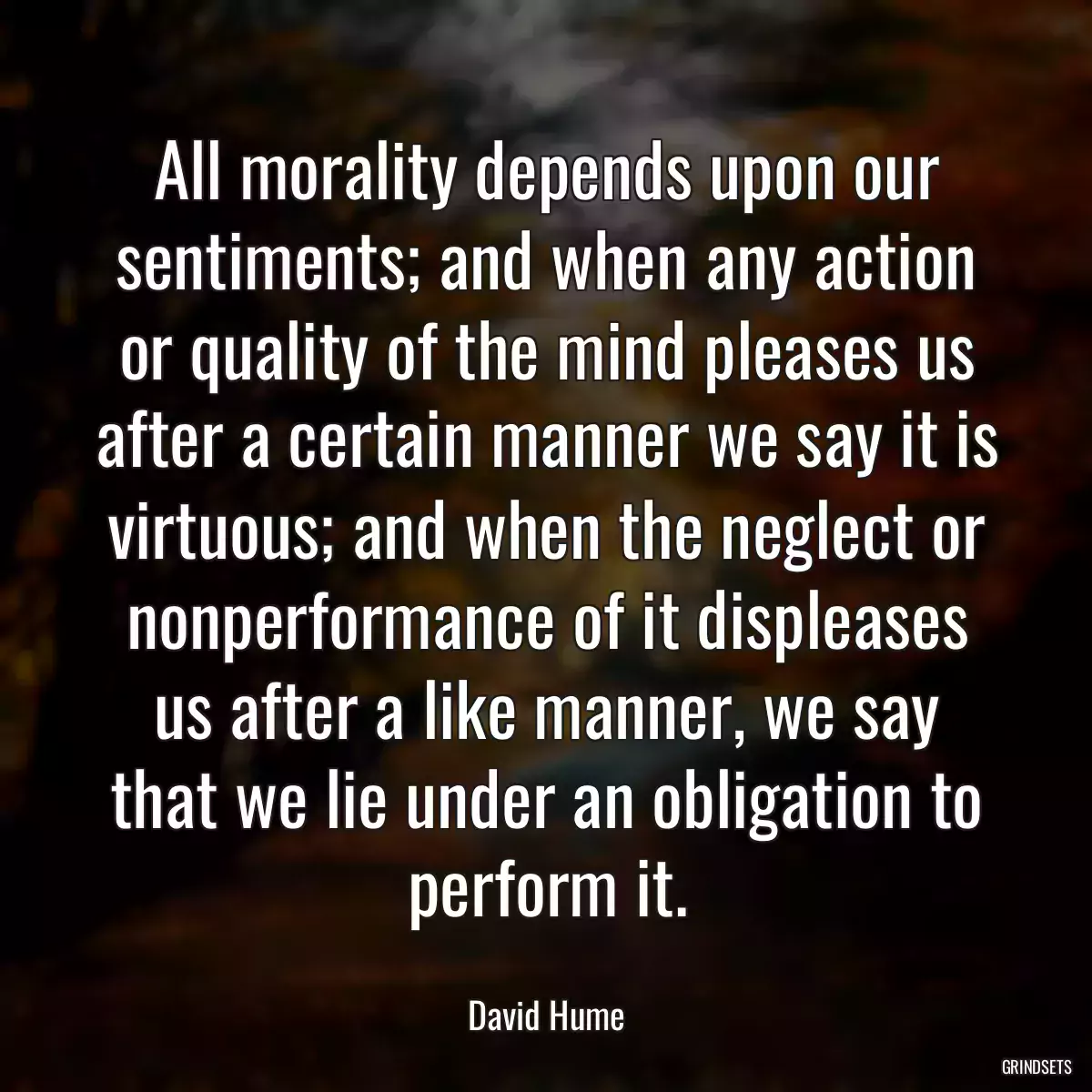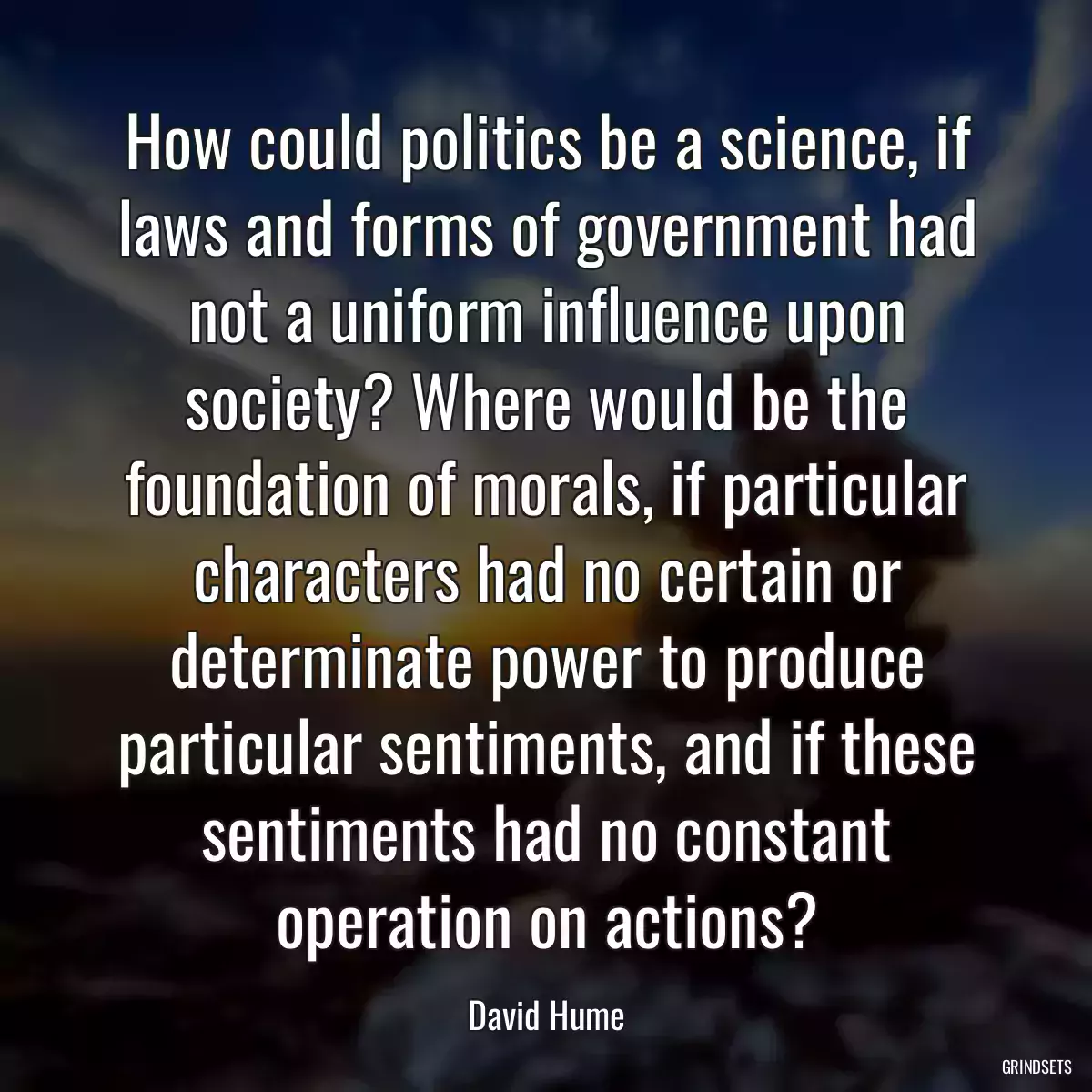
Were a man, whom I know to be honest and opulent, and with whom I live in intimate friendship, to come into my house, where I am surrounded with my servants, I rest assured, that he is not to stab me before he leaves it, in order to rob me of my silver standish; and I no more suspect this event, than the falling of the house itself which is new, and solidly built and founded.--But he may have been seized with a sudden and unknown frenzy.--So may a sudden earthquake arise, and shake and tumble my house about my ears.

